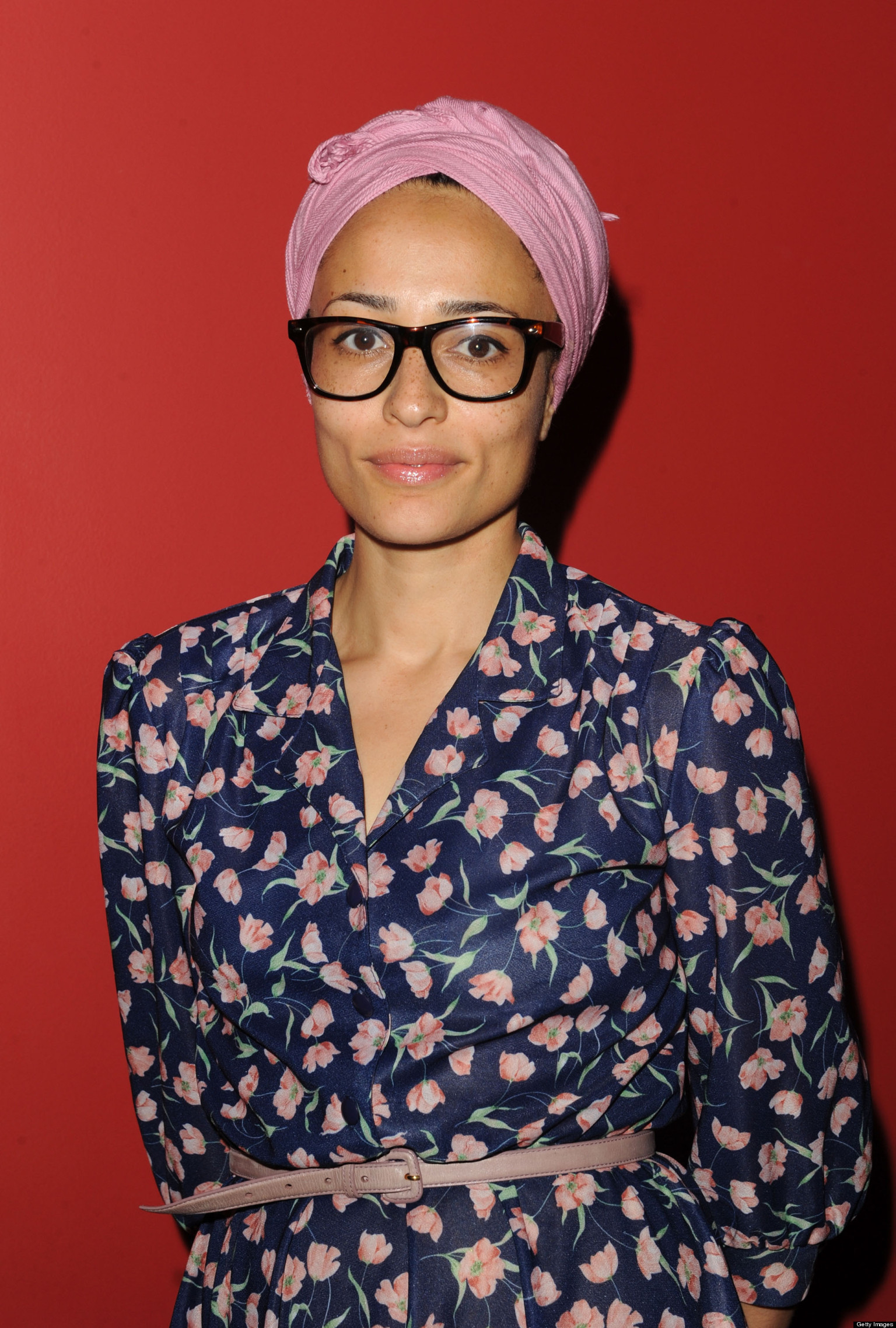I just came home from seeing Zadie Smith speak at Nourse Theatre as a part of the City Arts and Lectures, "On Arts" series benefiting the 826 Valencia Scholarship Program.
She spoke in conversation with Steven Winn, who was impressive himself as an interviewer. The shepherding of thoughtful and provocative conversations is an art, and like Terry Gross and Krista Tippett, two of my favorite interviewers, Winn was clearly well-read and researched, having immersed himself in Smith's work; he was able to draw out universal themes and (what seemed like) urgent questions out of the details of her writing. I appreciated that very much.
But of course, Zadie herself was not overshadowed, as she was equally, if not more tactful and intelligent. She wore bell-bottom jeans and high-heeled boots, which elongated her slim legs, a black blazer, and a pastel turban around her head. Thick black glasses framed her very-chiseled face, the structure of which you could make out from far out in the audience. Poised, graceful, relaxed, with a calm disposition, a keen wit, and an affable sensibility. She was funny and often self-deprecating, which literary audiences like these do appreciate, as we tend to be overly critical of everything and of ourselves, and seeing that quality in other people endears us to them.
Her voice was a delight to listen to--the kind of mellifluous British intonations that charms an American audience, and she talked about how her voice, which through schooling had become refined and posh, ostracized her from her working class family.
*Disclaimer: I wrote these quotes down in the dark so they may not be 100% accurate
On creating new stories: "I have a sense of their shape and color in my head... When NI start something new, I'm looking for a different feeling..."
On the importance of acuity in writers: "being able to judge the reality of the feeling of what you wrote"
On imperfect novels: "There is rarely a perfect novel, but I think imperfect novels have a lot to offer us."
On how writing a novel is like singing karaoke, which makes novels much longer than necessary: "Just give me one more verse."
On creating the feeling of being in a city like San Francisco, walking along a stretch of Fillmore where coffee shops and crack addicts co-exist within a few blocks: "You have to make a decision about how you feel when you are dealing with that kind of extremity."
On fiction imitating reality: "Fiction is always about 'as good as,' not being reality itself."
On how her generation of writers were influenced by TV: "our minds are structured like sitcoms... the structural way of thinking and perceiving."
On loving America and only being able to understand it after living here because outsider perception of America is so wholly influenced by pop culture: "Pop culture is the veil over the reality of American life."
On what middle class people do: "get as much isolation as possible,"
On Obama being a good writer: "he's ambivalent, which is why he's a good writer, but I'm not sure good writers make good presidents."
On people who want to be President: be wary of them.
On traveling: "always be aware of the illusory nature of wherever you are."
On self-awareness and the bubbles we live in: "keep remembering that your existence is a construction you build around you."
On the reading she assigns to her undergraduate fiction class: early Hilary Mantel, Muriel Spark, Teju Cole, Brian Moore
On what George Saunder ("a fantastic Buddhist") can teach all of us about the illusory connection between success and contentment: "You have to let go of the idea that the things of this world will satisfy you."
On the importance of reading: "You can't be original without knowing completely what came before." (Apparently both she and Michael Chabon both used to pen stories under famous author names, like Agatha Christie and P.G. Wodehouse)
On women getting about 'not needing a man': "humans need humans to be happy"
On writing: "the art of the heart...the life of the art...The whole business of novel-writing is life."
At one point, she read a passage from her most recent novel NW, and the passage that she read, though it included several characters, only made mention of two names: Natalie, a black lawyer, and her daughter, Naomi -- which is very uncanny because my name is Natalie and my sister's name is Naomi.

0 comments:
Post a Comment